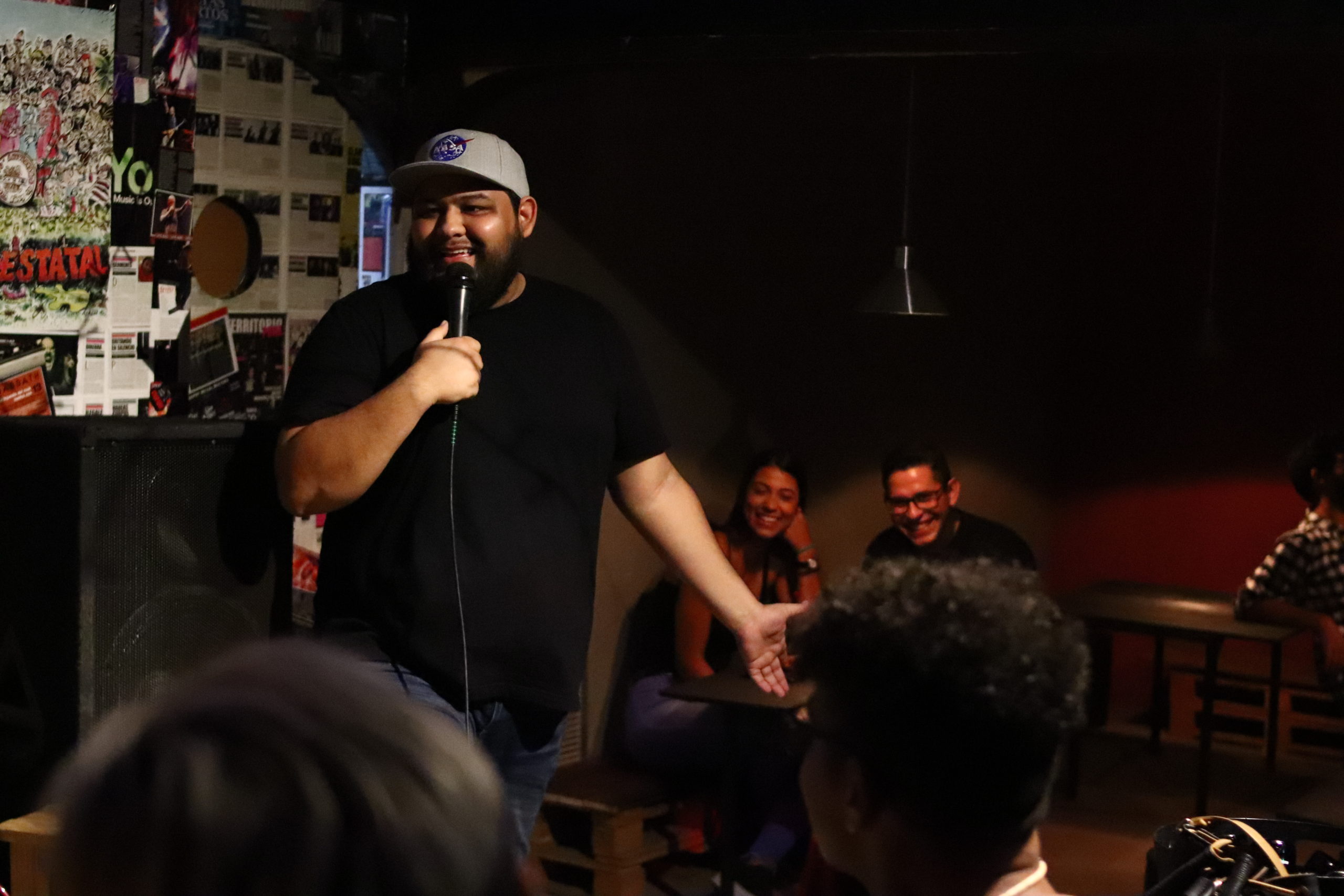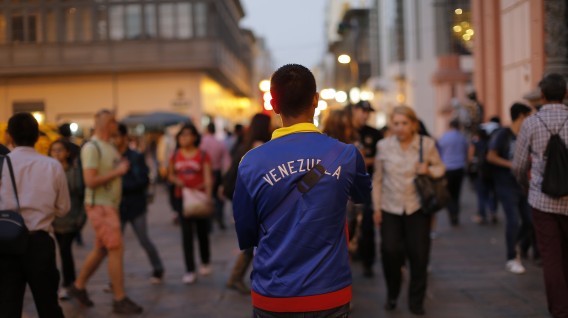The president of the National Assembly, Jorge Rodríguez, announced on January 9 the intentions of the ruling party to resume the discussion of the questioned Law on the Supervision, Regularization, Acting and Financing of Non-Governmental and Related Organizations (Anti-Society Law), an instrument that seeks to impose a series of new regulations on civil groups and threatens to dissolve the organizations that fail to comply.
The intentions of the ruling party have been strongly criticized in the country through statements released by Foro por la Vida -an association that brings together different Venezuelan human rights organizations- and the National Academy of Political and Social Sciences, all of them rejecting the content of the bill by considering that it “criminalizes solidarity” and poses “a serious threat to democracy.”
The Alarms have also been raised abroad. Since the introduction and approval of the first draft in January 2023, the Inter-American Commission on Human Rights (IACHR), the OAS Special Rapporteur for Freedom of Expression and at least seven instances of the United Nations (the Independent International Fact-Finding Mission on Venezuela, the Office of the United Nations High Commissioner for Human Rights [OHCHR], the Human Rights Committee and four special rapporteurs) have publicly raised their doubts about the project.
A point of no return
The Fact-Finding Mission was one of the first international bodies to express concern about the content of the bill.
“If passed, this law could represent a point of no return in the closure of the civic and democratic space in Venezuela,” warned Marta Valiñas, chair of the Mission.
Francisco Cox, UN Mission expert, said that “the proposed law would put in place formal requirements on existing and prospective NGOs which are so onerous that, in practice, it would grant the State a quasi-permanent power to suppress them. The law is clearly aimed at obstructing, as opposed to facilitating, the exercise of the right of association.”
A similar opinion was expressed by the incoming High Commissioner Volker Türk, who was in the country at the time and assured having provided “detailed observations on this issue to the authorities and I repeat my call for any legislation to be in line with international human rights standards.”
The bill presented by MP Diosdado Cabello forces all non-profit organizations (NPOs), including but not limited to non-governmental organizations (NGOs), to obtain ministerial authorization for establishing their legal personality, even if they already have one, and enroll in a new registry before the Autonomous Service of Registries and Notaries (Saren).
In addition, the bill requires the organization, its members and employees to present a sworn declaration of assets before the Office of the Comptroller-General, even though they are not public officials. It also imposes the registration before the Comprehensive Defense Registry and the National Office Against Organized Crime and Financing of Terrorism, as well as the change of their governing statutes and to periodically disclose information about their assets, funds and members, even to people outside the organization and the State.
The true colors
The Anti-Society bill, along with a ruling from the Office Against Organized Crime and Financing of Terrorism and a communication by the Venezuelan Banking Superintendency (Sudeban), have been showcased by the Venezuelan authorities as a package of necessary measures to prevent NPOs operating in the country from being used by criminals for money laundering, thus complying with the mandates of international bodies such as the Caribbean Financial Action Task Force (CFATF).
However, the Fact-Finding Mission has expressed its belief that these reasons are simply made-up excuses to silence critical voices. In a September 2023 report, the Mission found
“[R]easonable grounds to believe that the Government is using the existing regulatory framework to limit the operations of NGOs, labour unions and political parties. Recently adopted regulations, often associated to legitimate objectives such as combatting terrorism or money-laundering, are used to limit the operations of civil society organizations.”
To justify its reserves the Mission cited the content of a CFATF report that questioned the interest of the Venezuelan authorities to monitor non-profit organizations, despite the risk of them being used for money laundering by criminal or terrorist groups being negligible in comparison to other sectors of the economy, according to information provided by the competent authority in Venezuela.
The Mission highlighted that “the CFATF considered that the measures adopted by the Government are disproportionate and that they should be subjected to risk assessment.”
Likewise, the Mission took note of the declarations made by the proponent of the bill MP Cabello, who said that “non-governmental organizations (…) are appendages that operate across the world to guarantee the operation of imperialism” and that most of the NGOs currently operating in Venezuela have to do with the political sphere with “the precise purpose of generating destabilization in the country.”
To the trash can
The UN Special Rapporteurs on freedom of peaceful assembly and of association; on the promotion and protection of the right to freedom of opinion and expression; on the situation of human rights defenders, and on the promotion and protection of human rights and fundamental freedoms while countering terrorism issued a statement in September 2023 questioning the draft law:
“If passed in its current version, this bill could affect the exercise of human rights, mainly the right to freedom of association, as well as the rights of people who participate and benefit from the activities of organizations constituted as different types of associations.”
Likewise, the experts denounced that the new procedures and controls imposed by the bill would entail “difficulties for Venezuelan NGOs to continue operating freely and effectively.” In particular, they referred to the rules that compel the organizations to report to the authorities the origin and destination of their funds.
“The obligation to register all donations under the conditions provided for in the bill may be incompatible with the international human rights framework,” they denounced while recalling Article 13 of the Declaration on Human Rights Defenders enshrining the right of every person, individually and in association with others, to solicit, receive and utilize resources to promote and protect human rights.
Given the number of objections and reserves, the requests made separately by the IACHR and Its Special Rapporteurship for Freedom of Expression and the UN Human Rights Committee to the Venezuelan authorities should not come as a surprise.
The Inter-American Commission on Human Rights and the Special Rapporteurship for Freedom of Expression urged Venezuela to “refrain from adopting legislation and regulations of any kind that arbitrarily restrict the right to freedom of association and freedom of expression and the right to get involved in matters of public interest. The Commission and its Special Rapporteurship for Freedom of Expression further urge the State to take measures aimed at restoring democracy and the rule of law.”
For its part, the UN Committee called on the State to
“Repeal or refrain from adopting any measure or law that may limit the exercise of the right to freedom of association or result in undue control over civil society organizations or interference in their activities.”
How does this affect Venezuelans?
The magnitude of the threat posed by the draft Law on the Supervision, Regularization, Acting and Financing of Non-Governmental Organizations and Related Entities has led every major international human rights body to express their concern and warn of the risks it poses to the already battered Venezuelan democracy.
In an election year, it should not be surprising to see the Venezuelan authorities redouble their efforts to control organized civil society, the last corner out of their control that refuses to heed their dictates.
Translated by José Rafael Medina




